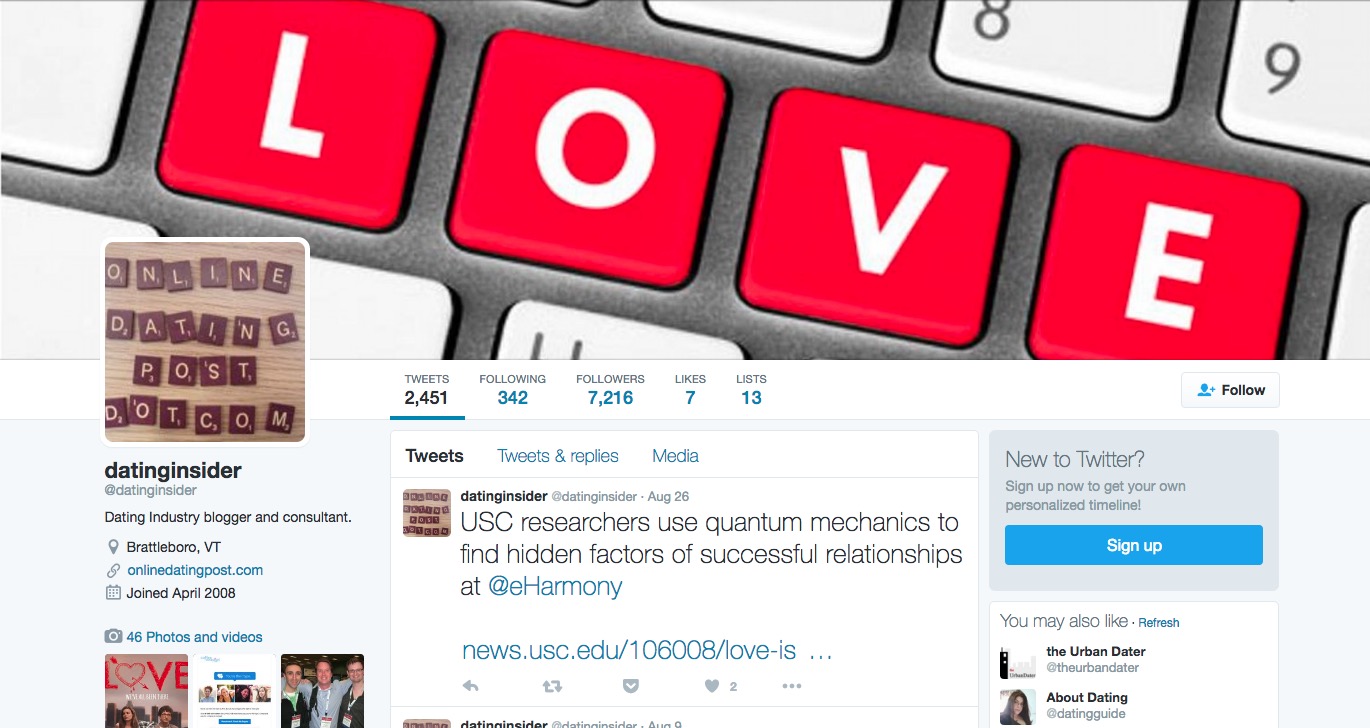The majority of online dating companies know little about how people are using their sites.
I had this thought while I was reading about Rearden Commerce, which just raised $100 million. Patrick Grady has spent the past eight years of his life building the ultimate personal Web assistant in relative obscurity. But now his company, Rearden Commerce, is quietly emerging as major force among enterprise startups.
I am coming to New York. What does my Rearden Commerce personal assistant know about me? It knows I am a CEO of a Silicon Valley company, I will be staying downtown, I will be in midtown during the day, and it knows I like sushi.
Successful dating sites track many different metrics, but what do they actually know about their members and how they use the site?
- How many emails sent and to whom.
- Who is being bookmarked and winked at (everyone knows that winks are terrible, women NEVER respond to winks online. If you can’t take the time to write an email, don’t even bother unless you are fabulously handsome and not very bright.)
- Matchwords clicked on.
- Lot’s of search data.
- And so on.
Obviously the list is much longer but you get my point.
Here’s an incredible opportunity to improve the success rate for online daters by paying attention to how people use dating sites. Leveraging this data to empower singles to make better use of dating sites, better choices and increase the amount of interaction with other members.
Yet the majority of dating sites choose to do nothing.
Why do dating sites still have such rudimentary search functionality? How come Transparansee is the only company doing anything remotely interesting with dynamic search in the dating space?
Think about the search process. I enter in my search criteria or fire up a saved search, which I probably created months ago and have no idea what the search parameters are.
Browsing the results, I choose to click on a few people. Of those, I may email one or two and add a few more to my hotlist. What does a dating site learn about the people I click on in search results? How does that information relate to the people I actually email?
Why can’t my search habits be used as fodder for emails from my dating site telling me to try new things? Why can’t Match create a custom Saved Search based on how I use the site, restricting, relaxing or adding new search criteria based on my usage patterns?
How come I never get an email telling me to revise my saved searches? Why do I have to seek out and struggle through a generic FAQ/Help/Magazine to read editorial content and the same damn “10 steps towards better online dating.”
Just because a dating site is intuitive doesn’t mean people are going to use all the features, or explore to see how doing things differently may result in new experiences.
If I have 50 people in my hotlist, why doesn’t my dating site tell me to either email 10 of them or decide to delete them from the list? Where is the proactive trigger helping me make better decisions and get the most out of the site?
Dating sites should know more about you than any other web property, yet they squander the opportunity to leverage this knowledge to make our lives easier.
I’m terrified to restrict the type of person I’m seeking in case I overdo it and am unable to see everyone that might be a good match. So I have to slog though the same people time and time again. I’m sure they are just as sick of seeing me as I am them.
It would be great if I could change the search criteria in real time with slider controls. As I move the slider towards brunette, the blondes disappear from the search results. Modulating the age range would expand and contract the amount of results right in front of me. No need to keep going back to the search page and clumsily changing parameters.
This is not very difficult to implement and would completely change the way we search for people. I’m barely scratching the surface here, so why aren’t dating sites doing this kind of stuff?
If your dating site is based on packaged software or white label services, you’re not going to see these kinds of features anytime soon. You basically get what they sell you. Sure you can customize features, but that gets prohibitively expensive.
So we’re stuck relying on the top 20 dating sites to implement these kinds of features. Only they have so much bureaucracy, planning documents, development timelines, investors and brand identity issues to deal with, they are basically painted into a corner for the near-term.
Why offer improved search when that money could go to marketing? It’s a good point but I still think that better functionality can win over new members more effectively than more marketing dollars.
If insanity is doing the same thing over and over again and expecting different results, then online dating search is insane. What do you think?

